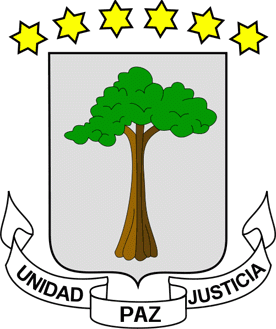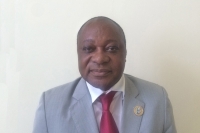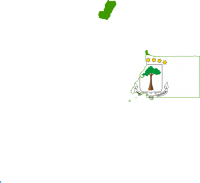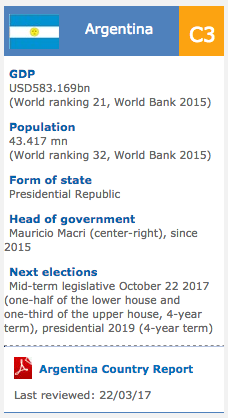Equatorial guinea: Equatorial guinea Outlook for 2013-17
2014/02/07

It has borders with Cameroon for 189km and Gabon for 350km.
Land in Equatorial Guinean or Equatoguinean land covers an area of km². The climate is tropical and always hot and humid.
Equatorial Guinean(s) or Equatoguinean(s) speak Spanish (official), French (official), pidgin
Climate: tropical; generally hot and humid; monsoonal-type rainy season (June to November) with southwesterly winds; dry season (December to May) with northeasterly harmattan winds.Guinean(s) speak Portuguese (official), Crioulo, African languages.
OVERVIEW
Equatorial Guinea (2012 est. pop. 736,300) 10,830 sq mi (28,051 sq km) is located in central Africa. It includes the islands of Bioko, Annobón, Corisco, Elobey Grande, and Elobey Chico in the Gulf of Guinea, and Río Muni on the African mainland. Río Muni, which includes about 93% of the nation’s land area and 75-80% of its population, is bordered by Cameroon to the north, by Gabon to the east and south, and by the Gulf of Guinea to the west.
The country’s main challenge is to use these substantial revenue inflows efficiently to diversify the economy. Equatorial Guinea’s political and economic stability is attracting growing interest from foreign businesses, especially to extract oil deposits. This provides a favorable medium-term outlook, particularly in natural-gas extraction projects.
The country also has unexploited deposits of titanium, iron ore, manganese, uranium, and gold. Both Río Muni and Bioko have substantial road networks. Malabo, situated on Bioko island, is Equatorial Guinea’s main port as well as its capital and largest city. A new capital, Oyala, is under construction on the mainland. In addition to Malabo, other important cities include Luba (also on Bioko) and Bata and Ebebiyín (in Río Muni).
The value of Equatorial Guinea’s exports is considerably higher than the cost of its imports. The United States is the country’s largest trading partner, followed by China, Spain, Italy, and France. The main exports are petroleum, methanol, timber, and cocoa; the chief imports are petroleum equipment and other machinery, foodstuffs, and beverages. Equatorial Guinea continues to depend heavily on foreign investment.
The major threat to political stability in 2013-17 is the risk of the elderly president, Teodoro Obiang Nguema Mbasogo, leaving office suddenly, owing to either ill health or a coup, which would create a destabilising power vacuum. Policy will in principle be guided by the government's medium-term strategy paper, the National Economic Development Plan: Horizon 2020, which targets economic diversification and poverty reduction.However, the difficult business environment, which constrains private-sector investment, is expected to persist; in particular, corruption among officials will remain rampant. Decelerating investment and oil output will slow GDP growth to 4.9% in 2013, and further, to 3.9%, in 2014.
Political outlook
The regime won all apart from one seat in the parliamentary and senatorial elections on May 26th. The opposition accused the authorities of fabricating the results and tried to organise a street protest. Crackdowns on political dissent intensified in the run-up to and aftermath of the polls. Despite the turbulence around the elections, the security forces remain loyal to the president and the regime will maintain firm control over the political scene.
Economic policy outlook
Despite rising oil production, continued high capital spending and lower oil prices mean that The Economist Intelligence Unit expects the fiscal surplus in 2013-14 to average only 0.4% of GDP. Given the government's track record of erratic fiscal management and capacity for unbudgeted spending, the risk of a more negative outcome is high.
Economic forecast
Following a downward revision of our export growth forecast, we now expect the current-account deficit to widen to an average of 12.4% of GDP over the outlook period. Despite a large trade surplus, services imports and profit repatriation by foreign oil firms remain high.
OVERVIEW
Outlook for 2013-17
- The major threat to political stability in 2013-17 is the risk of the elderly president, Teodoro Obiang Nguema Mbasogo, leaving office suddenly, owing to either ill health or a coup, which could create a destabilising power contest.
- The lack of political freedoms will continue to trigger sporadic anti-government protests. However, firm control of the security forces means that the president will maintain overwhelming influence over the political scene.
- The difficult business environment, which constrains private-sector investment, is expected to persist; in particular, corruption among officials will remain rampant.
- The Economist Intelligence Unit expects the fiscal account to move from small surpluses in 2013-14, underpinned by rising hydrocarbons output, to an average deficit of 1.1% of GDP in 2015-17 as revenue from oil activities falls.
- Decelerating growth in investment and oil output means that GDP growth will slow to 4.9% in 2013, and further, to 3.9%, in 2014. As hydrocarbons production drops, growth will ease to an average of 1.3% in 2015-17.
- The current-account deficit is forecast to widen slightly, to an average of 12.6% of GDP in 2013-14, as oil revenue growth is outpaced by import growth, before narrowing in 2015-17 as capital imports and profit repatriation by oil firms fall.
Review
- The regime and its allies won nearly all the seats in the parliamentary and senatorial elections on May 26th. The results reflected a lack of democracy and the flawed electoral process rather than the popularity of the regime.
- The opposition has accused the regime of fabricating the election results and criticised the lack of political freedoms. Security forces prevented the opposition from protesting and repression intensified around the polls.
- On June 13th, amid growing pressure on the regime to improve governance, a French court upheld the arrest warrant for Equatorial Guinea's second vice-president, who is wanted on money-laundering charges.
- In the first six months of 2013 piracy attacks in the Gulf of Guinea nearly doubled from last year. Failure to stem growing maritime insecurity will exacerbate political instability and harm economic activities in the region.
- In May the government said that it would guarantee loans to small and medium-sized enterprises as part of its efforts to diversify the economy. Corruption and the small local market will limit the impact on the economy.
- Oil production increased by 13.4% in 2012, driven by output from the Aseng field, which came on stream in late 2011. Long-term prospects for the oil sector are uncertain as most major oilfields have reached their peak capacity.
- Related Articles

Africa's Relationship With China Is Ancient History
2017/07/02 In 2002 South Africa's Parliament unveiled a digital reproduction of a map - of China, the Middle East and Africa - that some speculated could be the initial map of the African continent. The Da Ming Hun Yi Tu - the Comprehensive Map of the Great Ming Empire - was drawn up around 1389 during the Ming Dynasty, according to historian Hyunhee Park.
Africa: Making Things Happen at the Bank - 'Not a Talk Shop' - Akin Adesina
2017/07/02 Dr. Akinwumi Adesina is focusing on five areas to achieve the African and world goals for a prosperous continent since becoming president of the African Development Bank - Africa's major public financial institution in September 2015. He was a keynote speaker at this month's Corporate Council on Africa's U.S.- Africa Business Summit in Washington D.C. and moderated a lively panel with five African government ministers. He as well received the Gene White Lifetime Succcess Award from the World Child Nutrition Foundation. This week, he was named the 2017 recipient of the World Food Prize, a prestigious honor that includes a $250,000 award. In an interview in Washington, DC, Adesina discussed the Development Bank's ambitious schedule and his vision for attracting the increase capital Africa needs. Posting questions for AllAfrica was Noluthando Crockett-Ntonga.
Climate change laws around the world
2017/05/14 There has been a 20-fold increase in the number of global climate change laws since 1997, according to the most comprehensive database of relevant policy and legislation. The database, produced by the Grantham Research Institute on Climate Change and the Environment and the Sabin Center on Climate Change Law, includes more than 1,200 relevant policies across 164 countries, which account for 95% of global greenhouse gas emissions.
Martin Crisantos Ebe Mba, Chairman of the National Bank of Equatorial Guinea
2016/12/10 Senator and Chairman of the National Bank of Equatorial Guinea Martin Crisantos Ebe Mba looks at the political, economic, and social changes taking shape in the country in recent years making it “a valued country, admired for its evolution and development at all levels” and its positioning as a financial platform for Central Africa and beyond.
Steady evolution was made in the cooperation between the two nations in various fields
2015/10/02 The friendly relationship and cooperation between the People's Republic of China and the Republic of Equatorial Guinea sustained sound development in 2013. The two nations enjoyed close political exchanges and increasing mutual trust. In September, Zhao Hongzhu, member of the Secretariat of the CPC Central Committee and Deputy Secretary of the CPC Central Commission for Discipline Inspection, led a CPC delegation to Equatorial Guinea.
- Equatorial guinea News
-
- BOTSWANA: Africa: USA-Africa - No Policy? Bad Policy? or Both?
- BOTSWANA: Africa: U.S. State Department To Get Experienced Diplomat in Key Africa Post
- BOTSWANA: Africa’s economic growth in 2016 was driven by East Africa
- BOTSWANA: Africa property offers rich pickings for the brave
- BOTSWANA: Bill Gates sees US likely to maintain aid levels for Africa
- BOTSWANA: Africa: Graca Challenges Women, Girls to Grab Emerging Opportunities
- Trending Articles
-
- BOTSWANA: Africa: USA-Africa - No Policy? Bad Policy? or Both?
- NIGERIA: Nigeria: Diezani Forfeits N7.6 Billion to Govt
- BOTSWANA: Africa: U.S. State Department To Get Experienced Diplomat in Key Africa Post
- EGYPT: Egypt foreign reserves at highest since 2011 uprising
- GHANA: Falling cocoa prices prompt joint action from Côte d’Ivoire and Ghana
- QATAR: Qatar closes Chad embassy in Doha






.gif?1356023993)





